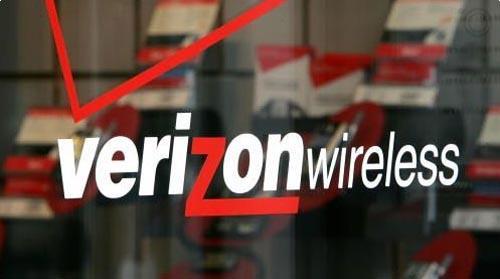
Since the beginning of this smartphone boom, America's wireless networks have been taking the biggest portion of the abuse. All while calling less and less, people have begun using their phones more to browse the web, chat and to keep up with several different social media platforms.
Verizon Wireless is moving to a tiered data structure.
Every time I hear that, I die inside a little bit. Tiered data really shouldn't come as a surprise though, as the rise of smartphones has spawned an entire generation of datamongers. The phone has evolved from a device simply to make calls into a device that keeps us connected in every way imaginable. Since unlimited minute plans are (or used to be) rather costly, using data and texts to communicate became the primary method for many to communicate. As a result, we have seen a slight decline in the price of calling plans and a move away from unlimited data. By placing data caps each month and charging more for each greater tier, carriers make more money and (attempt to) relieve a good deal of the pressure from their network. It's a win-win … for the carriers.
And so the time is nearing for other carriers to jump on the tiered data bandwagon. First it was AT&T, second was T-Mobile. Next in line is Big Red. Sprint has also been in talks to remove their unlimited plans for a more lucrative tiered structure. But I imagine Sprint will be reluctant since they gained a large sum of subscribers likely due to their more affordable unlimited plans.
Talk of Verizon moving to a tiered data structure is hardly new. We first caught word of this months ago and as if there was any doubt, we got further confirmation with the leak of their tiered data structure early Monday morning.
Being one of the more expensive carriers to be with, some more expensive data tiers from Verizon were pretty much expected. But Big Red has typically – in my experience – been pretty understanding when it comes to options for light users. This time around, those users have been totally ignored and the only options that will be offered are not exactly cheap.
Unlike T-Mobile and AT&T who have already took the tiered plunge while keeping light users in mind, Verizon will supposedly begin their tiered data plans at 2GB which will run customers $30 per month. This is $10 more than T-Mobile's 2GB plan and $20 more than their smallest offered plan at 200MB. Verizon's 2GB plan is also $5 more per month than AT&T's and it costs $15 more than AT&T's smallest 200MB plan. Of course, Verizon will offer larger plans … for those who can afford them. At 5GB or 10GB per month, these plans will set customers back $50 and $80 per month respectively. T-Mobile also offers 5 and 10GB plans, which run $30 and $60 respectively.
What do all of these numbers mean? In short, Verizon's tiered data will not only be expensive, but it will be the most expensive tiered data across the board. I can understand a few discrepancies, but every single option being consistently higher than the competition is a bit ridiculous. And no offering of a smaller data plan? It's as if Verizon isn't even trying to compete.
We all knew 4G would come with a fairly hefty price tag and tiered structures would be soon to follow, but I never expected to see data plans that ran $50 and $80 per month with a cap. On average, I use roughly 5 to 6GB of data. All I can say is I am glad to be grandfathered into my unlimited plan because I will find another carrier before I pay $50 per month for 5GB of data.
What say you, pups? (As if I don't already know.) Will you be snagging your unlimited plan while you can? Are you at all surprised by these prices? Would this be enough to send you on a search for a new wireless provider?